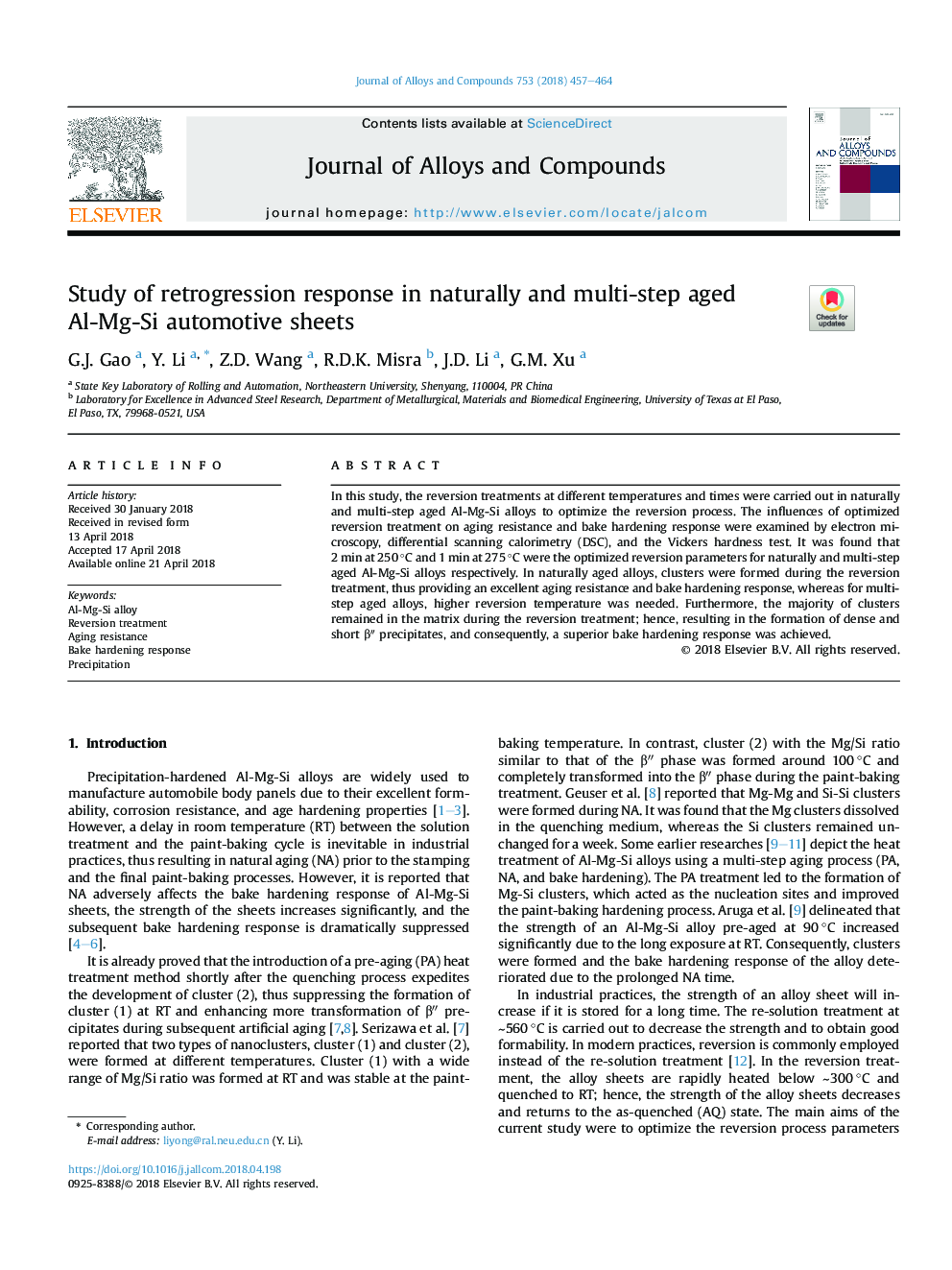| Article ID | Journal | Published Year | Pages | File Type |
|---|---|---|---|---|
| 7991518 | Journal of Alloys and Compounds | 2018 | 8 Pages |
Abstract
In this study, the reversion treatments at different temperatures and times were carried out in naturally and multi-step aged Al-Mg-Si alloys to optimize the reversion process. The influences of optimized reversion treatment on aging resistance and bake hardening response were examined by electron microscopy, differential scanning calorimetry (DSC), and the Vickers hardness test. It was found that 2â¯minâ¯at 250â¯Â°C and 1â¯minâ¯at 275â¯Â°C were the optimized reversion parameters for naturally and multi-step aged Al-Mg-Si alloys respectively. In naturally aged alloys, clusters were formed during the reversion treatment, thus providing an excellent aging resistance and bake hardening response, whereas for multi-step aged alloys, higher reversion temperature was needed. Furthermore, the majority of clusters remained in the matrix during the reversion treatment; hence, resulting in the formation of dense and short βⳠprecipitates, and consequently, a superior bake hardening response was achieved.
Related Topics
Physical Sciences and Engineering
Materials Science
Metals and Alloys
Authors
G.J. Gao, Y. Li, Z.D. Wang, R.D.K. Misra, J.D. Li, G.M. Xu,
